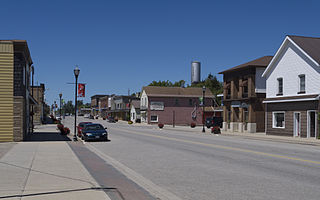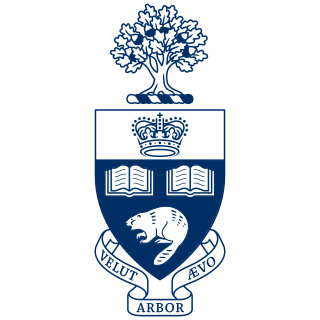
Alexander Grant MacKay was a Canadian teacher, lawyer and provincial level politician. He served prominent posts in two provincial legislatures as Leader of the Opposition in Ontario and as a Cabinet Minister in Alberta.

The Edmonton City Council is the governing body of the City of Edmonton, Alberta, Canada.

Sidney Parsons was a Canadian politician, mayor of Edmonton, Alberta, and candidate for election to the Legislative Assembly of Alberta.
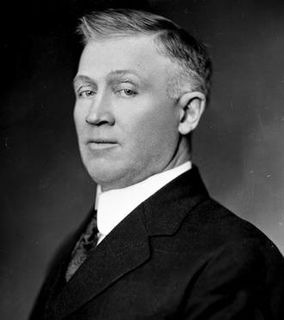
Joseph Andrew Clarke was a Canadian politician and lawyer. He served twice as mayor of Edmonton, Alberta, was a candidate for election to the House of Commons of Canada and the Legislative Assembly of Alberta, and was a member of the Yukon Territorial Council.

Kenneth Alexander Blatchford was a Canadian politician who served as both mayor of Edmonton, Alberta and a member of the House of Commons of Canada.
The 1899 municipal election was held December 11, 1899. It was the first municipal election in which only a portion of the aldermen were to be elected; in 1898, three of the six aldermen elected were elected to two-year terms in preparation for a system in which only half of the aldermen would be up for election each year. Kenneth McLeod, Alfred Jackson, and Kenneth W. MacKenzie were all only halfway through their two-year terms at the time of the election. However, MacKenzie resigned in order to become mayor, leaving council with four vacancies. Only three were filled by the election; council appointed Henry Goodridge to fill the fourth seat until the 1900 election.
The 1904 municipal election was held December 12, 1904 for the purpose of electing a mayor and eight aldermen to sit on the Edmonton City Council, as well as five public school trustees and five separate school trustees. It was Edmonton's first election as a city, and the first in which there were eight aldermanic positions instead of six. Because of this new composition of city council, all aldermanic positions were elected instead of only half as had been the case in previous elections and would again be the case in subsequent elections. Accordingly, even though Edmund Grierson, Charles May, and Joseph Henri Picard had been elected to two-year terms in the 1903 election, their terms were truncated. May and Picard decided to stand for re-election, while Grierson did not.
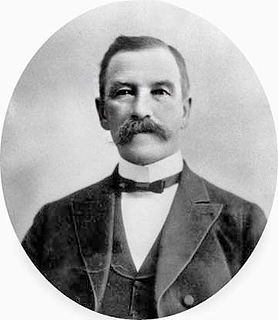
Thomas Bellamy was a politician in Alberta, Canada and a municipal councillor in Edmonton.

Kenneth Archibald McLeod, was a politician in Alberta, Canada and a municipal councillor in Edmonton. He was also the builder of the McLeod Building, the Edmonton's first skyscraper.

Cornelius Gallagher was a meat merchant and politician in Alberta, Canada. He served as a municipal councillor and briefly as the third mayor of Edmonton.
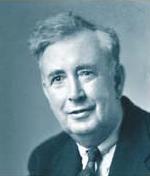
Joseph Woods Adair was a politician in Alberta, Canada, a municipal councillor in Edmonton, and a candidate for election to the Legislative Assembly of Alberta.
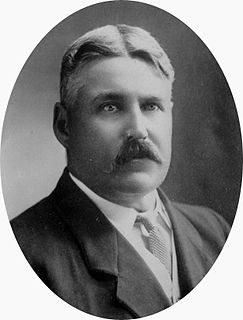
Robert Lee was a politician in Alberta, Canada and a mayor of Edmonton.
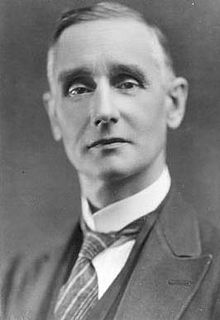
Ambrose Upton Gledstanes Bury was a politician in Alberta, Canada, a mayor of Edmonton, and a member of the House of Commons of Canada.

James McCrie Douglas was a politician in Alberta, Canada, a mayor of Edmonton, and a member of the House of Commons of Canada.

Wilfrid Gariepy was a Canadian politician, member of the Legislative Assembly of Alberta and provincial cabinet minister, member of the House of Commons of Canada, and municipal councillor in Edmonton.
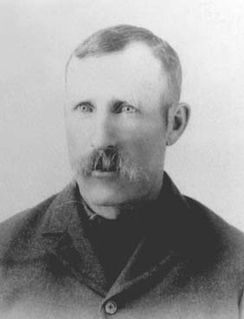
Henry Goodridge was a politician and municipal councillor in Edmonton, Alberta, Canada.

Arthur Thompson Cushing was a politician in Alberta, Canada and a municipal councillor in Edmonton. His brother, William Henry Cushing, was a mayor of Calgary, while another brother, Alfred Cushing, served as alderman in that city.

James Thomas Joseph Collisson was a politician in Alberta, Canada, a long-time municipal councillor in Edmonton, and a candidate for election to the Legislative Assembly of Alberta.
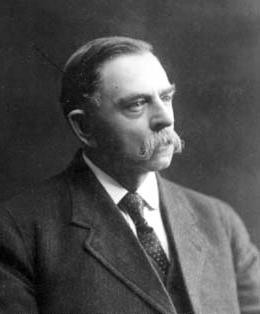
Charles Gowan was an American and Canadian pioneer and politician. He served as mayor of Antigo, Wisconsin and as a municipal councillor in Edmonton, Alberta.

Thomas James Walsh was a politician in Alberta, Canada. He served as alderman on the Edmonton City Council from 1912 until 1913.



